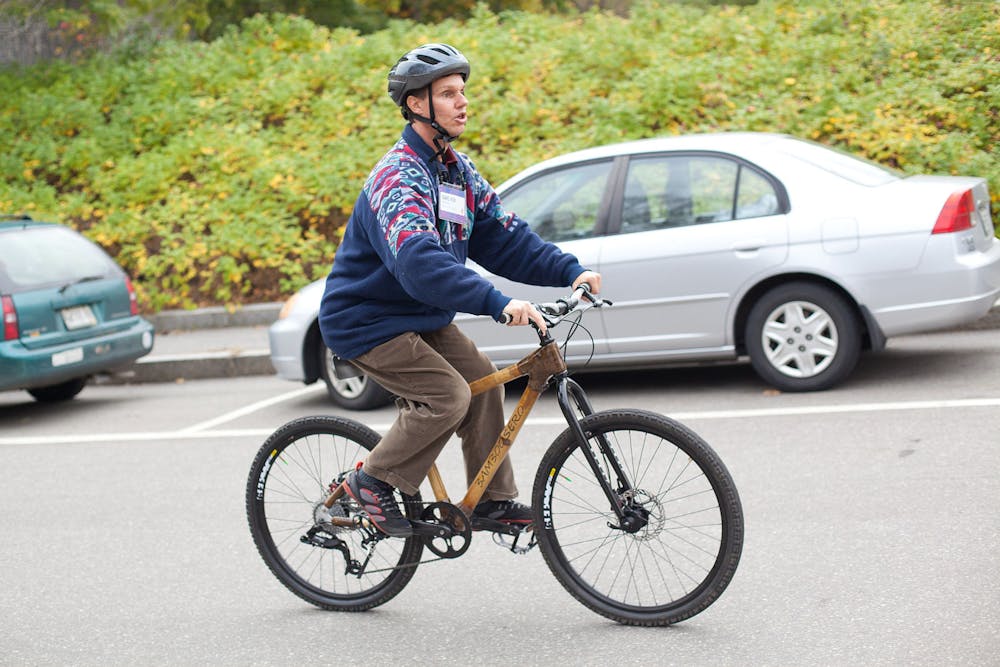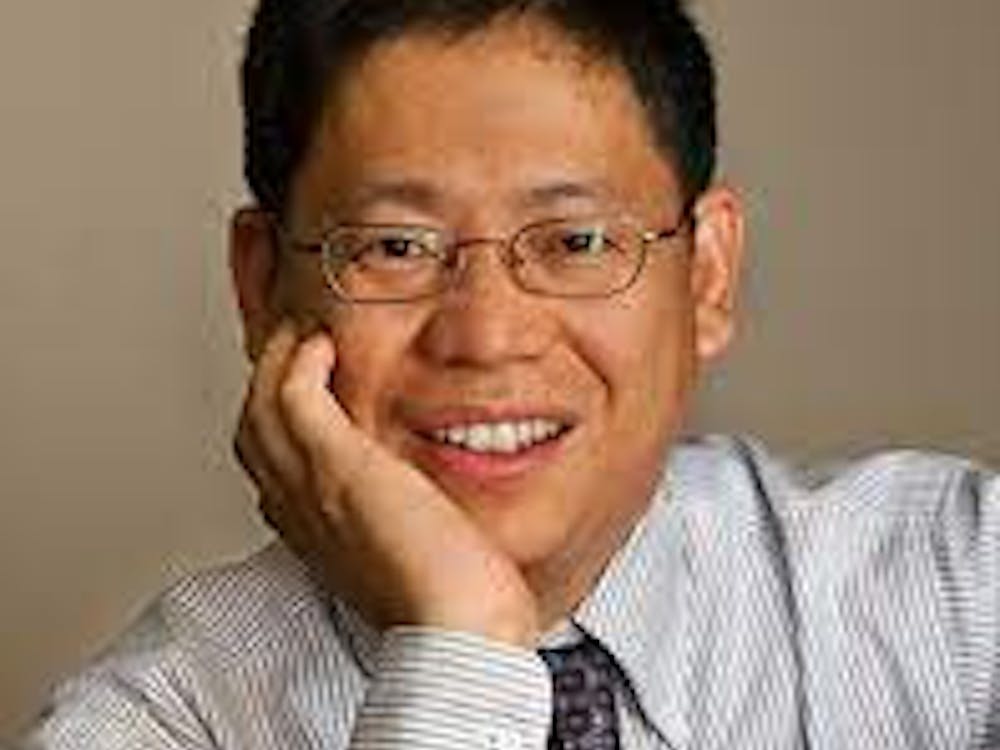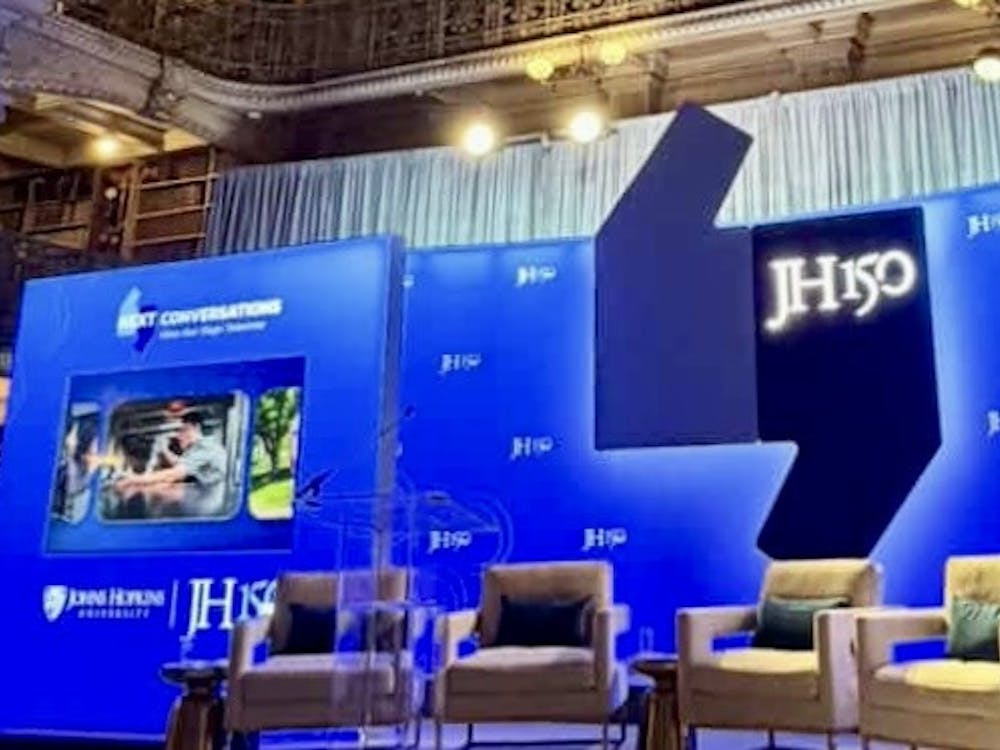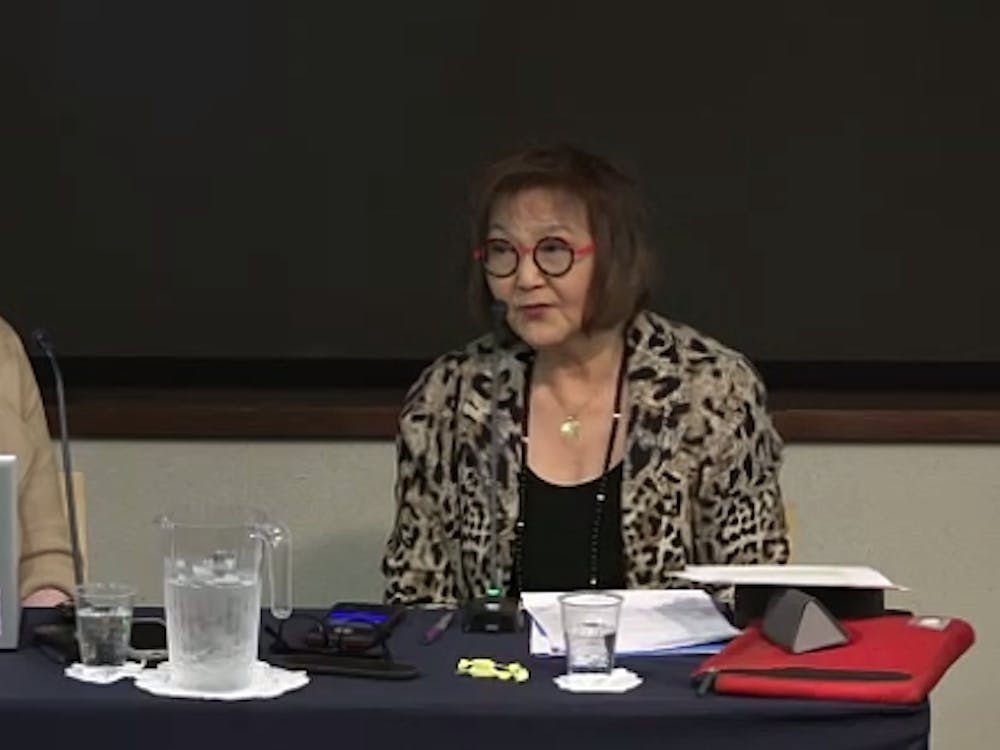Daniel Kish, the president of World Access for the Blind, visited the Homewood campus to deliver a lecture on human echolocation on March 9. Kish was born sighted but completely lost his eyesight before the age of two due to retinoblastoma and has no visual memories.
Though he could not see the audience at the event, he remarked almost immediately that he was glad to deliver the lecture to a packed house.
“When humans are wearing clothing, they tend to dampen the space to dampen the acoustic,” he said.
During the talk, he explained and demonstrated the skill that allowed him to make this determination: human echolocation.
Since Kish was a child, he has been making a sound known as a palate click in order to navigate his surroundings. He describes the palate click as the ideal tool for human echolocation because it creates a strong and unique frequency in a short burst — a flash of energy — which the expert echolocator will become highly attuned. By listening for changes in the reflected sound, the echolocator is able to determine the contour of surrounding objects, at a scale from a few feet to dozens of yards.
This skill, which Kish has been fine-tuning for over 50 years, was of interest to neurologists. One researcher is Cynthia Moss, the principal investigator of the University’s Batlab, whose empirical studies are almost exclusively focused on bat echolocation.
In an interview with The News-Letter, Moss spoke on why she contacted Kish and fellow echolocators for a conversation 10 years ago.
“I invited Daniel Kish and two other blind men to my lab at the University of Maryland to discuss with them what I can’t directly ask echolocating bats: What is your experience of the world through echoes?” she said.
Kish described the mechanics and limits of human echolocation but noted that the mental load needed to echolocate for a blind person is not extreme.
Since Kish lost his sight at a young age and learned to echolocate as a child, the visual part of his brain — the primary visual cortex — has adapted to interpret echoes and form a spatial understanding of his surroundings.
“I often liken active echolocation as akin to central vision because you can bring it to bear with extra clarity and precision on a target or a subject,” Kish said.
Although echolocation is possible using footsteps or by merely listening, Kish explained that active echolocation is different. He called it a native skill, listing the range of activities available to him and other echolocators, such as riding a bike or crossing a roadway.
In an interview with The News-Letter, senior Roberto Flores mentioned that he was interested in learning about the mechanics of human echolocation from Kish’s lecture. Flores has been working to create assistive devices with the student organization, the Volunteers for Medical Engineering.
On March 11, Flores and several teams of undergraduates competed in an assistive technology design challenge posed by Kish, applying their Hopkins engineering education to address the challenges of those with disabilities.
“We wanted to have students come in, come up with an idea — some sort of solution, whether that be a device, an engineering solution, a piece of code, to do something to affect the needs that Daniel is going to lay out for us,” Flores said.
Kish’s mission of improving access and education for the blind is his primary focus. He outlined a series of challenges for himself and his students: security, inclusion, health, social engagement and access, among others.
“There’s a system for how a blind person should be guided — a set of rules. Blind people tend to be told how they’re going to be guided, who is going to guide them, where they’re going to be guided and when it’s going to happen,“ he said. “Where’s the agency in that? All of that needs to go and be replaced by self-determination.”
Through lecturing and educating blind youth about echolocation, he hopes to improve the free choice of the global blind population.
Moss emphasized that Kish’s talk was a source of inspiration for many.
“He has applied the insights and knowledge he’s acquired as a blind person to better the lives of thousands of others around the world,” she said. “It’s our hope that Daniel inspires members of the Hopkins community to boldly tackle personal and societal challenges.”





